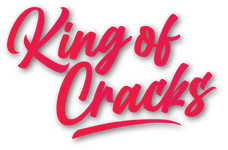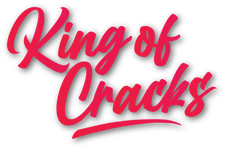|
As a chiropractor, I have seen firsthand the benefits of chiropractic care for my patients. However, there are some who view chiropractic as “pseudoscience” or a less legitimate form of healthcare. In this blog post, I aim to address this misconception and provide some insight into why this labeling may be occurring.
History of Chiropractic: The founder of chiropractic is D.D. Palmer, who was born in 1845 in Canada. Palmer's interest in the human body and its natural healing abilities led him to develop the concept of chiropractic. He believed that the body had an innate ability to heal itself and that the nervous system played a crucial role in this process. According to Palmer's theories, misalignments in the spine, which he referred to as "vertebral subluxations," interfered with the nervous system's ability to function properly, leading to various health problems. Palmer's approach to healing was based on the idea that correcting subluxations in the spine through manual manipulation could help restore the body's natural healing abilities. This approach, which he called chiropractic, quickly gained popularity, and Palmer went on to establish the first chiropractic college in Davenport, Iowa, in 1897. The medical field, often times, has been critical of chiropractic practices, arguing that there is no scientific evidence to support the claims that spinal manipulation can treat or cure health problems. Some medical professionals have also expressed concern about the safety of spinal manipulation, particularly when it comes to neck manipulation, which they claim “can potentially cause serious injury.” Common misconceptions: There is a common misconception that neck manipulations performed by chiropractors can lead to strokes. However, this idea has been largely debunked by scientific research. In fact, the risk of stroke following a neck manipulation is extremely rare, with a rate of 1 in 5.85 million adjustments according to a 2016 study in the Journal of the Canadian Chiropractic Association. Additionally, a 2018 review of research published in the Journal of Manipulative and Physiological Therapeutics found that the risk of stroke after a chiropractic visit is no higher than the risk after a visit to a primary care physician. It is important to note that while stroke is a serious and potentially life-threatening condition, it is often caused by underlying health issues and not by chiropractic care. Chiropractors undergo extensive training and education to ensure safe and effective treatment for their patients. It is always recommended to consult with a licensed chiropractor for any concerns or questions regarding treatment options. Why Chiropractic is Labeled as Pseudoscience: The healthcare industry is highly competitive, and chiropractic care is often seen as a threat to traditional medicine. Additionally, chiropractors often operate independently and do not rely on pharmaceuticals or other traditional medical treatments, which can be a disadvantage in terms of funding and research opportunities. Furthermore, the lack of research studies on chiropractic care can contribute to the pseudoscience label. This is because, without empirical evidence to support the efficacy of chiropractic care, some healthcare professionals dismiss it as unproven or ineffective. Chiropractic Care and Big Pharma: Unlike many traditional medical treatments, chiropractic care is not funded by big pharma. This means that chiropractors may face additional hurdles when conducting research studies or receiving funding for their practice. However, it also means that chiropractic care is not influenced by the interests of big pharma, which can be beneficial for patients seeking natural and non-invasive healthcare options. Evidence-Based Medicine Supporting Chiropractic Care: While there may be some who view chiropractic care as pseudoscience, there is a growing body of evidence-based medicine supporting its benefits. Chiropractic care has been shown to be effective in treating a variety of conditions, including neck and back pain, headaches, and even digestive issues. Additionally, many patients report improved overall health and wellness after receiving chiropractic care. Conclusion: In conclusion, chiropractic care should not be dismissed as pseudoscience or an illegitimate form of healthcare. While it may face some challenges in terms of funding and research opportunities, evidence-based medicine supports the benefits of chiropractic care. As a chiropractor, I encourage patients to explore their healthcare options and to seek out natural and non-invasive treatments that can support their overall health and wellness. Keywords: chiropractic care, pseudoscience, healthcare industry, competitive fields, big pharma, research studies, evidence-based medicine References:
This blog post was written with the help of google search, research articles and the use of AI. For informational purposes only.
0 Comments
Leave a Reply. |
AuthorMy name is Jimmy Sayegh, DC, and I am a licensed chiropractic physician with over 10 years of experience. I believe that optimal health and wellness require a combination of factors, including exercise, a healthy diet, and routine chiropractic care. In my experience, regular exercise is essential for maintaining good health, as it can improve cardiovascular health, reduce the risk of chronic diseases, and help maintain a healthy weight. A balanced and nutritious diet is also crucial for optimal health, providing the body with essential nutrients needed for optimal functioning. In my blog posts, I will be sharing research articles and information that I have gathered over the years. All of my blogs are complied works from multiple research articles, journals, and my own personal opinions based on my clinical practice. Some of the blog articles have been drafted with the support of renowned entities such as Google, AI, scholarly publications, and peer blogs. Please note that these blogs are posted for informational purposes only. Archives
August 2023
CategoriesAll Age And Chiropractic Alkaline Water Athletics Breathing Bruxism Car Accidents Chronic Low Back Pain Cracking Sounds? Cupping Diet And Exercise Disc Herniations Endometriosis Gut Health Headaches Health And Wellness Hydration Infants And Children Knee Pain Magnesium Citrate Mental Health Myths Obesity And Genetics Opioid Crisis Osteoarthritis Pregnancy Pseudoscience? Sciatica Sleep Social Media Sports Injuries Strength Training Stretching & Exercise Sun Light Surgery Tinnitus TMJ & Jaw Pain Vit D And Calcium Whiplash Working From Home |
Home | Social Media | Pricing | Gift Cards | Press | Meet the King of Cracks | Contact | Podcast | My Blog | Privacy Practices
11879 Sebastian Way, Suite 103
Rancho Cucamonga, CA 91730
P: 909-989-6980
11879 Sebastian Way, Suite 103
Rancho Cucamonga, CA 91730
P: 909-989-6980
|
Copyright © 2024 Jimmy Sayegh DC | King of Cracks| Talking Crack Podcast. All Rights Reserved.
|

 RSS Feed
RSS Feed









